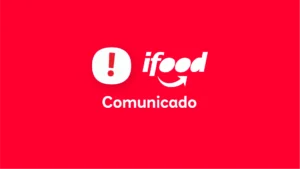This branch of science has been present in our lives since Antiquity, but many people don't even notice it.
Biotechnology is the branch of science that uses living organisms — such as plants, animals and microorganisms — to generate new products, processes and services that bring benefits to our quality of life. The name seems pompous and distant, but the results of biotechnology are more than known by many people.
The bread every morning, the wine on special occasions, the medicine that helps us overcome diseases, the vaccine that saves lives, fruits and vegetables available in fairs and markets in any season, biodegradable plastics and biofuel are examples of how biotechnology is close by, but we don't even notice it.
Biotechnology has several applications, in the most different areas:
- In healthcare, it is responsible for the production of medicines, antibodies, vaccines, growth hormones and diagnostic tests;
- In agriculture, it operates in the genetic improvement of plants, the production of inputs (such as fertilizers and seeds) and pest control;
- In the environment, it is an important part of obtaining fuels such as ethanol, recovering contaminated soil from landfills and landfills, depolluting rivers and lakes and contributing to ensuring sustainable production and consumption standards;
- In industry, it contributes to the more efficient and sustainable production of food, fuel, cleaning products, cosmetics and fabrics, among many others.
“New” name, old practice
Since human beings learned to make bread and alcoholic beverages, biotechnology has been used, through fermentation, as the blog explains Biotec Profession. The first signs of the use of fermented foods date back to Antiquity, many thousands of years ago.
But the term was only created in the last century, by the Hungarian Karl Ereky, in 1919, shortly after the First World War. This is the period known as traditional biotechnology and its main milestones were the production of food by natural means and the development of the first vaccine.
Modern biotechnology has as its starting point the discovery of DNA, which triggered a new field of study (genetic engineering) and the technique known as recombinant DNA. Basically, we learned how to make genetically modified organisms, which are so important for many of the advances already achieved.
Who does biotechnology in Brazil
An initiative on the Profissão Biotec website has already mapped 631 companies and startups of Brazilian biotechnology (access here the Biotec Map) operating in four major areas, as defined by the Brasil-Biotec Program, from Ministry of Science, Technology and Innovation: Human, Agricultural, Industrial and Environmental and Marine Health.
BioLinker, which in June 2022 received investment from the president of iFood, Fabricio Bloisi, is one of those organizations listed there. Bloisi was one of the mentors in monitoring the growth and management of the synthetic biology company and will now be a partner and member of its administrative board.
Despite their presence in all regions of Brazil, biotechnology companies focus on six cities, almost all in the southeast region: São Paulo (SP), Rio de Janeiro (RJ), Belo Horizonte (MG), Ribeirão Preto (SP), Porto Alegre (RS) and Viçosa (MG).
There are more than 60 bachelor's degree programs in biotechnology, biotechnology engineering and bioprocess engineering. But it is not necessary to have specific training in this area to work in this field. As it is multidisciplinary, graduates in biology, biomedicine, biochemistry, chemical engineering, food engineering and pharmacy can make a career in the profession depending on how their academic career was built. In the research area, there are 35 research institutes, among them the best known are Embrapa, The Oswaldo Cruz Foundation and the Butantan Institute.


